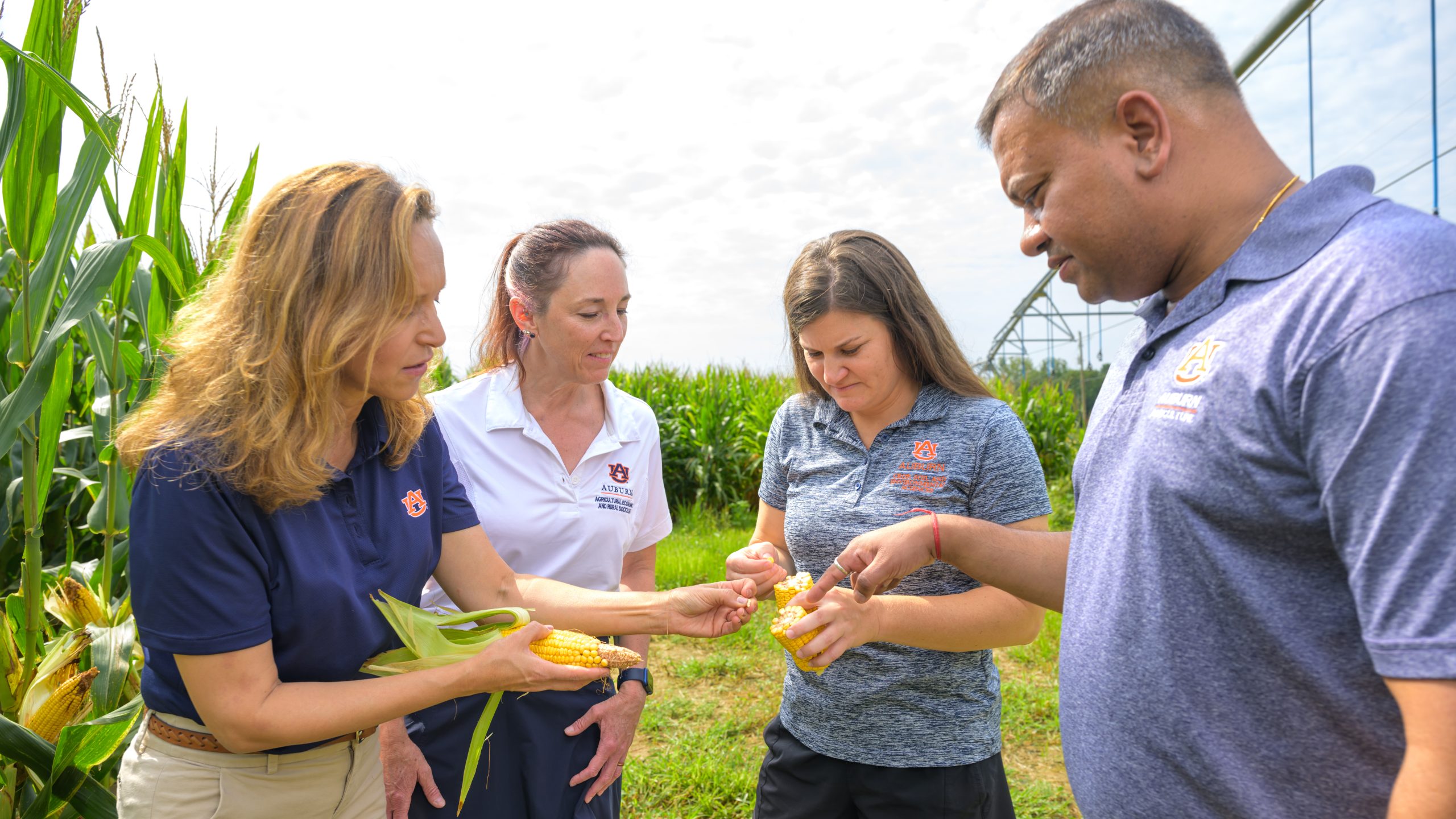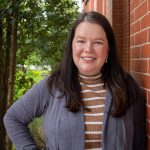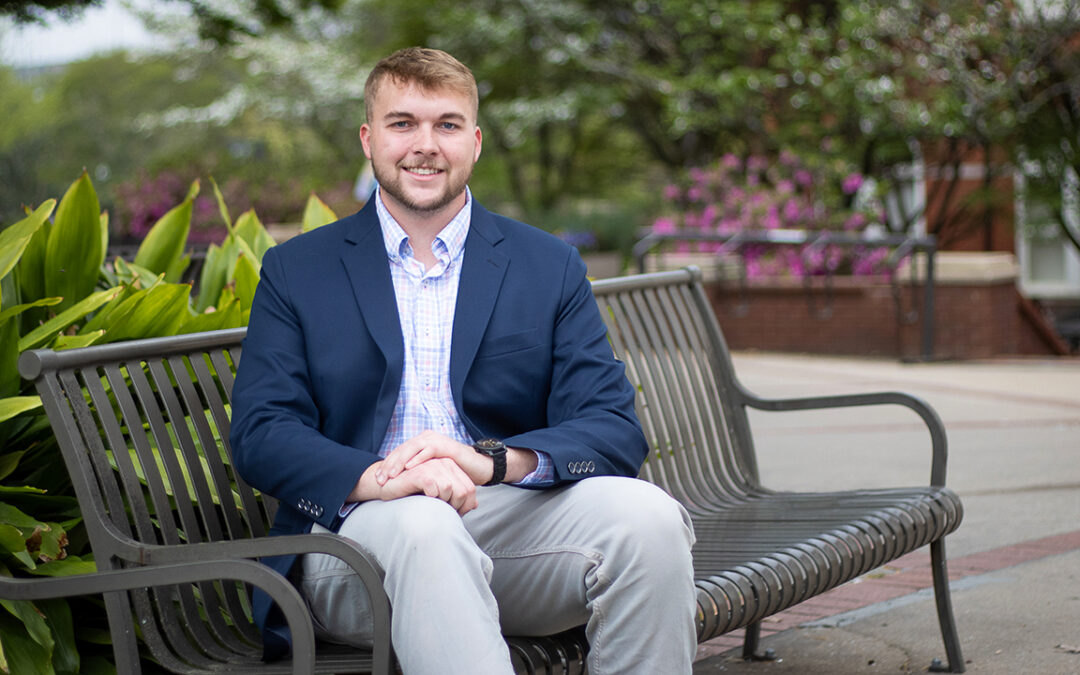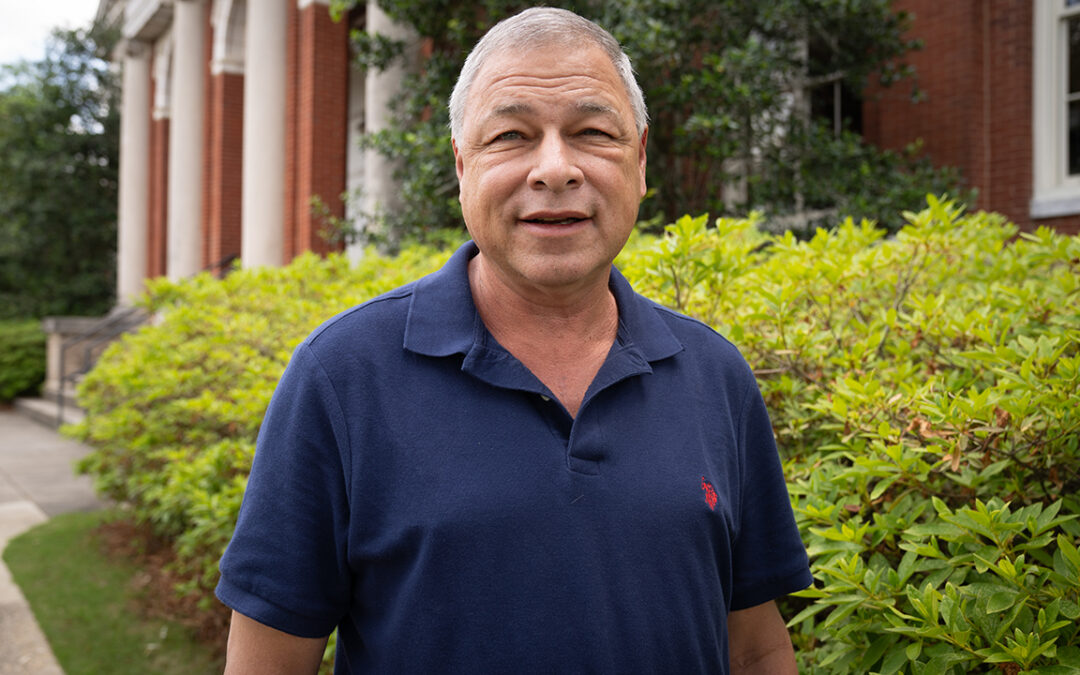How challenging is it to farm sustainably?
The answer is complex. While technological and scientific advancements have improved the resiliency of modern farms, there are challenges that today’s farmers face in adopting conservation practices.
Enter the Alabama Cooperative Extension System, the Auburn University College of Agriculture and the Alabama Agricultural Experiment Station. A team of researchers and Alabama Extension specialists from these entities comprise what is known as The Future of Farming Project, created to increase adoption of soil, nutrient and water conservation practices by establishing on-farm demonstrations and facilitating knowledge exchange among farmers.
It’s an effort with farmers, for farmers.
“We are helping farmers adopt digital technologies and sustainable agricultural practices,” said Brenda Ortiz, Alabama Extension specialist and professor in the Department of Crop, Soil and Environmental Sciences. “My responsibilities are demonstrating, evaluating and training farmers and crop consultants on how to best use precision irrigation technologies to increase crop productivity while strengthening environmental sustainability.”
Ortiz’s specialty is in precision irrigation. She helps farmers adopt a sustainable approach that allows the application of water to the crops at the right time and place, and in measured doses, creating optimal growing conditions. This is a win-win for the farmer: less water wasted, plus better yields.
And Ortiz represents just one part of The Future of Farming Project. She’s joined by fellow Auburn faculty members and Alabama Extension specialists Audrey Gamble, Rishi Prasad and Michelle Worosz, as well as Auburn alumna and agricultural economist at Compliance Services International Leah Duzy. Together, they aim to help farmers adopt conservation practices and tackle the social and economic barriers they face.
“One challenge is the fact that conservation practices do cost money for growers to adopt and install and may increase the management time required,” Duzy said. “However, for growers to invest in conservation practices such as cover crops and smart irrigation, they need to clearly understand how the cost of the practices relate to the benefits and how it will impact their profitability.”
For example, growers adopting smart irrigation practices such as soil moisture sensors and variable-rate irrigation are likely to increase overall yield and profitability across the field.
And adding cover crops — a crop planted to protect and improve soil during the seasons in which cash crops are not actively growing — has the potential to decrease the need for irrigation through improved water holding capacity.
“Some farmers may plant cover crops with the primary goal of increasing soil moisture storage and improving drought resilience, while other farmers may plant cover crops to provide supplemental nutrients to the following cash crop,” Gamble explained.
If they are fully informed of the costs, benefits and opportunities of these conservation practices, growers can make decisions regarding adoption.
Prasad’s focus is nutrient management, which he calls “an art as well as a science.” He helps farmers practice the 4R principles: the right rate of nutrients, at the right time, with the right source and the right method of application.
“Managing nutrients sustainably in Alabama farms will ensure that farmers have a profitable crop harvest and have fewer nutrient losses to the environment,” he said. “Fertilizers are expensive, and losing them means losing money and, at the same time, contributing to environmental issues such as polluting freshwater bodies or emitting greenhouse gases.”
These experts partnered with Posey Farms in North Alabama, L.C. Farms in South Alabama and Lazenby Farms in Central Alabama to provide regional on-site demonstrations, allowing Alabama farmers to learn in-person from both the researchers and from their peers.
Mitch Lazenby of Lazenby Farms hosted one of these on-site demonstrations over the summer. He shared his story of adopting conservation practices over the last 25 years.
“We are seeing how we can close up our gaps,” he said. “How can we get seed to soil with more cover, tighter and closer, with more biomass? There are so many nuances to these conservation practices, you really can pick any one of them and begin.”
The relationship between farmers like Lazenby and the team of researchers is an important part of this project and where Worosz comes in. The professor of rural sociology in the Department of Agricultural Economics are Rural Sociology and her graduate students document the knowledge and awareness of the efficient practices such as cover crops, moisture monitors, variable rate irrigation and nutrient management.
“Part of the process is to examine the relationship among the research-extension team and our stakeholders as the producers, crop consultants, extension field agents, associated government representations, and other relevant folks have valuable knowledge, experience and perspectives about these tools and practices,” she said. “The goal is for the research-extension team to integrate what they learn from the stakeholders into our collective research and outreach efforts so as to improve the science and increase our effectiveness.”
Worosz called this process “the co-development of knowledge.” She said the team has learned many things from stakeholders that they have, in turn, integrated into their respective work.
“I hope that the research-extension team is able to develop robust, trust-based and enduring relationships with our stakeholders,” Worosz said. “These types of relationships are critical for the agricultural community, at large, to reach an in-depth understanding of climate-smart technologies.”





